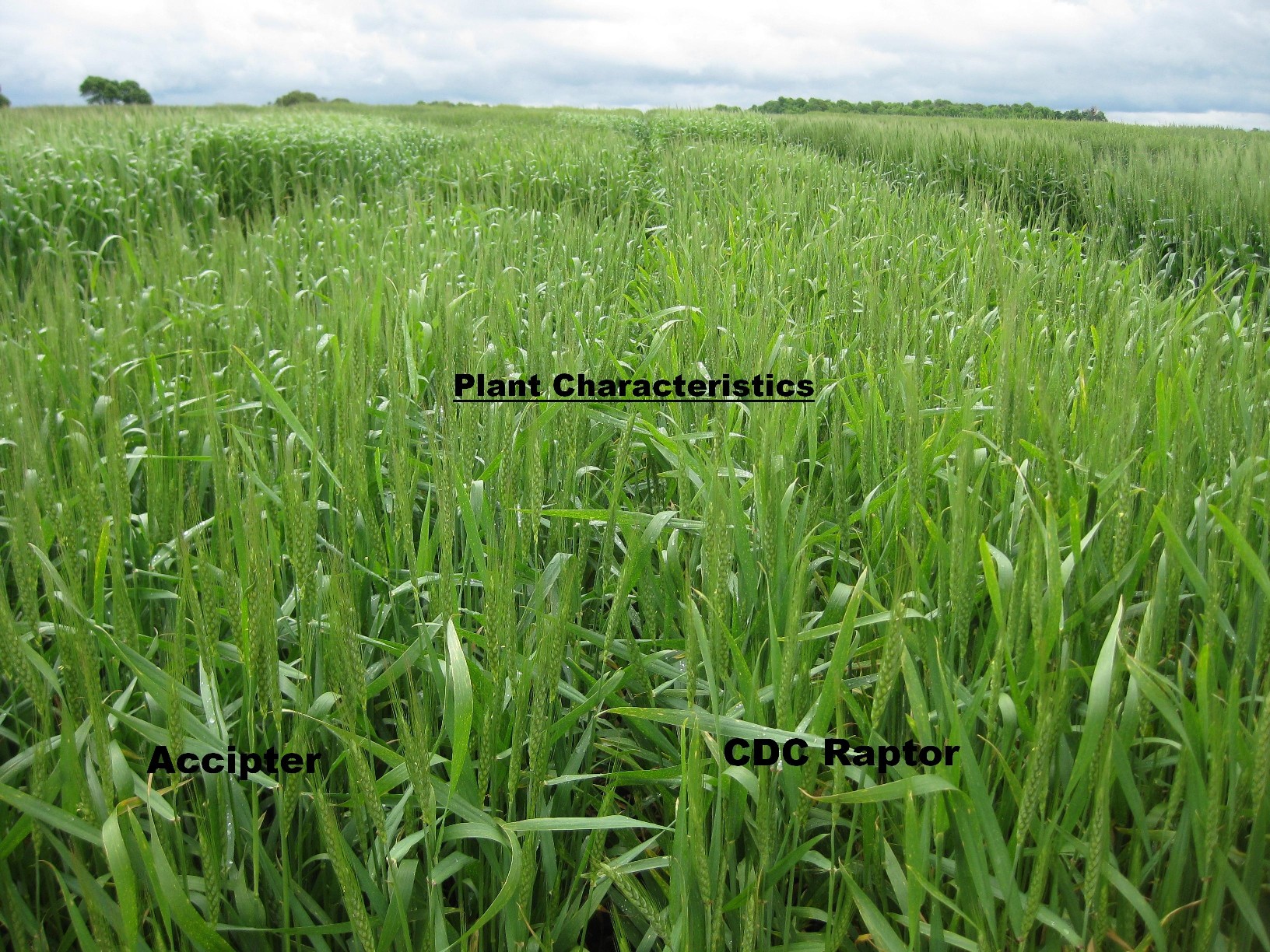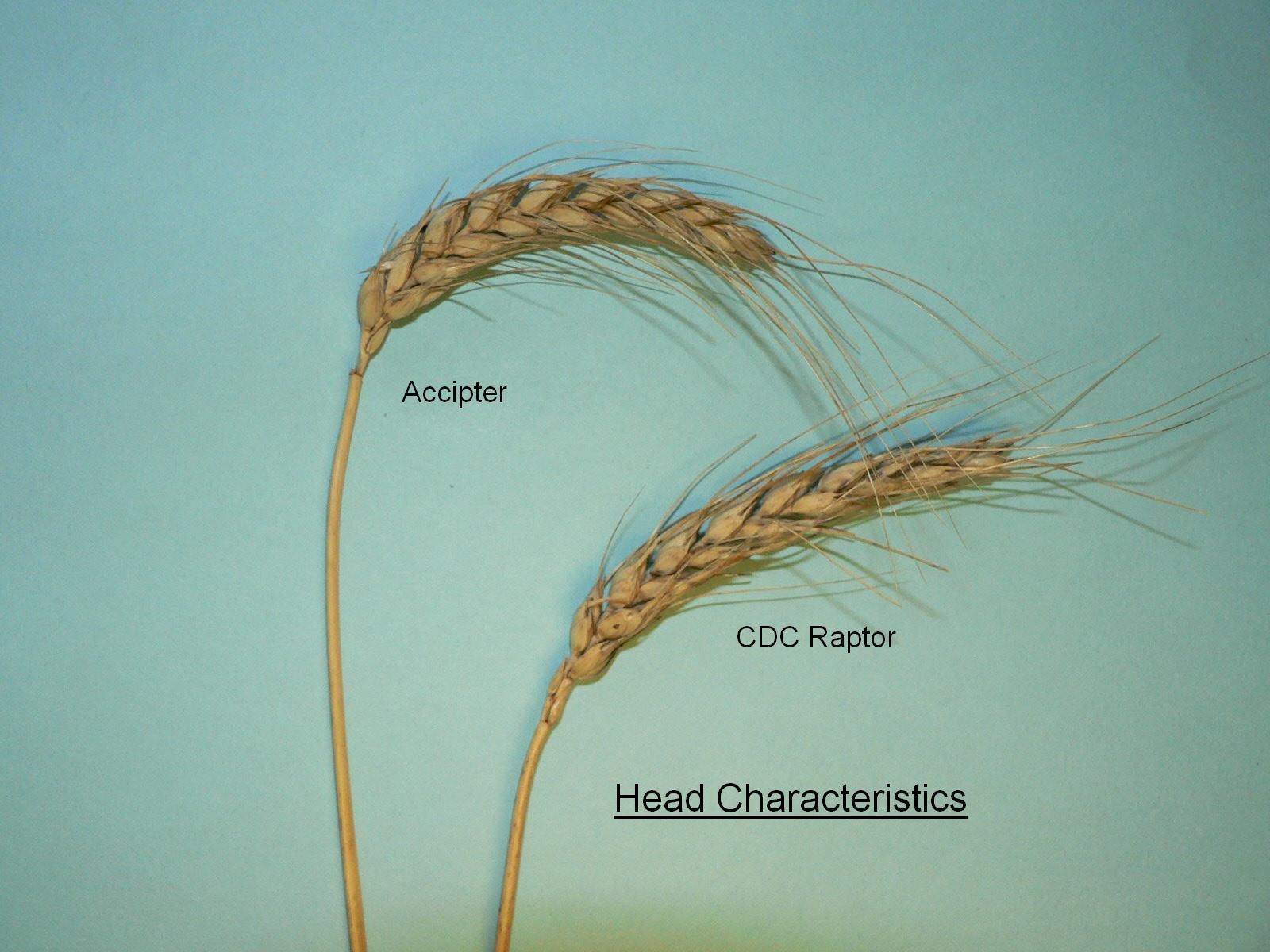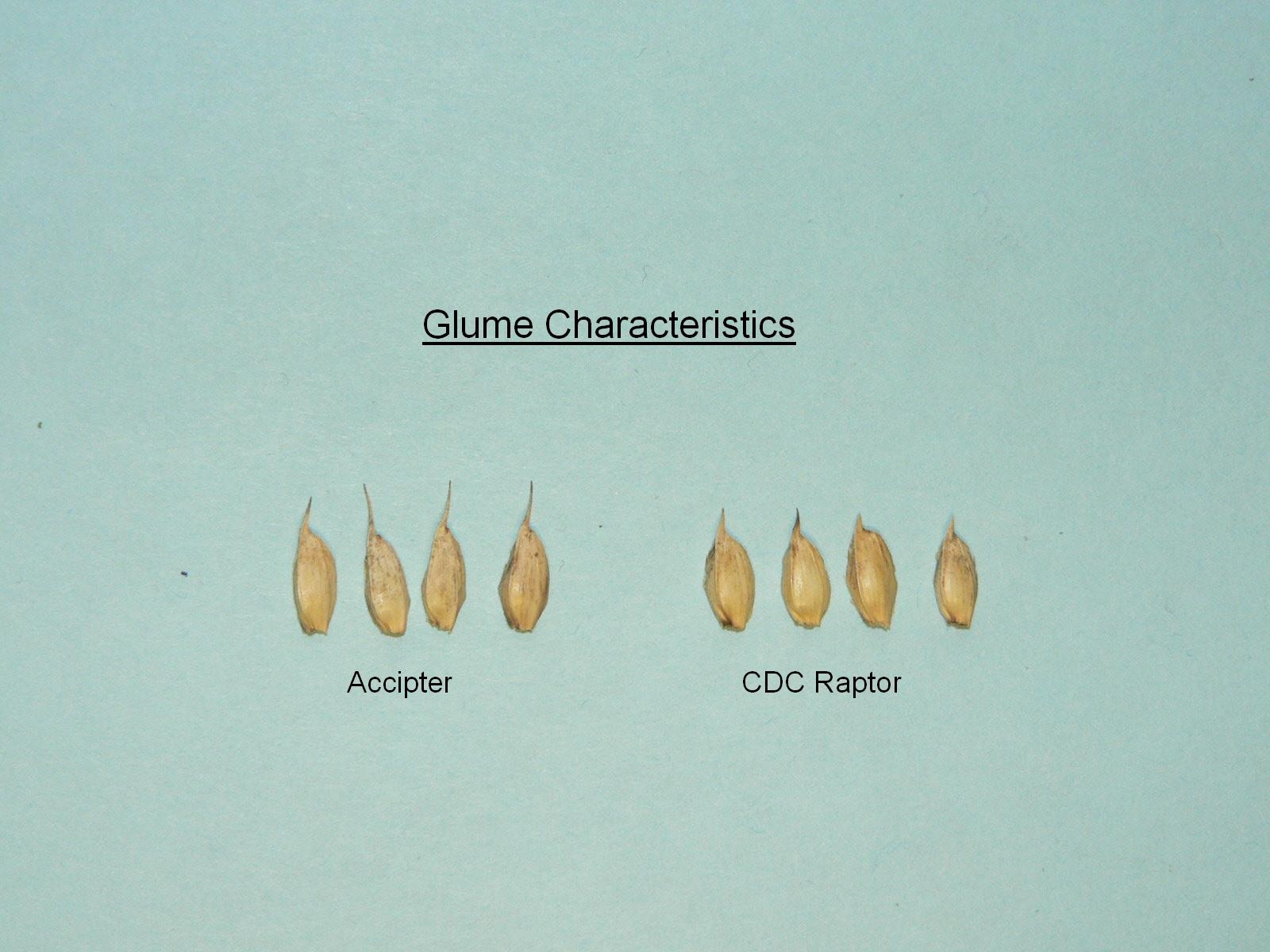Accipiter
| Denomination: | 'Accipiter' |
|---|---|
| Botanical Name: | Triticum aestivum |
| Applicant/Holder: |
University of Saskatchewan Crop Development Centre 4D36 Agriculture Building, 51 Campus Drive Saskatoon, Saskatchewan S7N 5A8 Canada |
| Breeder: |
David Brian Fowler, University of Saskatchewan, Saskatoon, Saskatchewan |
| Agent in Canada: |
SeCan Association 400-300 Terry Fox Drive Kanata, Ontario K2K 0E3 Canada Tel: 613-592-8600 ext.223 |
| Application Date: | 2008-07-29 |
| Application Number: | 08-6411 |
| Grant of Rights Date: | 2011-11-25 |
| Certificate Number: | 4217 |
| Date rights revoked: | 2018-11-25 |
Variety Description
Variety used for comparison: 'CDC Raptor'
Summary: 'Accipiter' has medium intensity of anthocyanin colouration of the flag leaf auricle while it is weak in 'CDC Raptor'. The shoulder width of the lower glume of 'Accipiter' is very narrow to narrow while it is narrow to medium in 'CDC Raptor'. 'Accipiter' has a narrow lower glume with no pubescence while it is medium width and pubescent in 'CDC Raptor'. The beak of the lower glume in 'Accipiter' is medium length and moderately curved while it is short and slightly curved in 'CDC Raptor'. 'Accipiter' has medium length brush hairs on the kernel while it is short in 'CDC Raptor'. The powdery mildew resistance in 'Accipiter' is moderately resistant to moderately susceptible while it is moderately susceptible to susceptible in 'CDC Raptor'.
Description:
PLANT: winter type, common wheat, prostrate growth habit at the 5-9 tiller stage, medium glaucosity of the culm at heading, low frequency of plants with recurved flag leaves
SEEDLING (4 leaf stage): weak to medium intensity of anthocyanin colouration of the coleoptile, pubescent sheaths and glabrous blades of the lower leaves
FLAG LEAF: medium intensity of anthocyanin colouration of the auricles, weak to medium glaucosity of the sheath, glabrous blade and sheath
STRAW (AT MATURITY): thin pith in cross-section, no anthocyanin colouration
SPIKE: very weak to weak glaucosity at heading, tapering profile, medium density, awns present, awns shorter than the length of the spike
SPIKE AT MATURITY: white, whitish awns, erect to incline attitude, curved neck of the culm, very sparse to sparse hairiness of convex surface of apical rachis segment
LOWER GLUME: very narrow to narrow shoulder, sloping to slightly sloping shoulder, medium length, narrow, glabrous, medium length moderately curved beak
KERNEL: hard red type, medium red colour, small to medium size, medium length, narrow to medium width, broad elliptical to elliptical, angular cheek shape, medium length brush hairs, small sized oval germ, medium crease width, shallow crease depth
AGRONOMY: good resistance to shattering, fair to good drought tolerance, good winter survival, fair to good resistance to pre-harvest sprouting
DISEASE REACTION: moderately resistant to moderately susceptible to powdery mildew (Erysiphe graminis, f. sp. tritici) and moderately susceptible to Septoria tritici blotch (Septoria tritici)
Origin & Breeding History: 'Accipiter' (experimental designation DH00-18-196) is a winter wheat variety developed by the Department of Plant Sciences, University of Saskatchewan, Saskatoon, Saskatchewan. 'Accipiter' originates from the cross made in 1999 of CDC Raptor / CDC Falcon using the doubled haploid method. Selection was made in field trials during 2002 to 2004 for agronomic traits and disease resistance.
Tests & Trials: Test and trials were conducted in 2009 and 2010 at C&M Seeds in Palmerston, Ontario. Plots consisted of 8 rows with a row length of 4 meters and a row spacing of 15 cm. Planting density was 400 seeds per meter squared. There were 4 replicates arranged in an RCB design.
Click on image for larger view

Wheat: 'Accipiter' (left) with reference variety 'CDC Raptor' (right)
Click on image for larger view

Wheat: 'Accipiter' (left) with reference variety 'CDC Raptor' (right)
Click on image for larger view

Wheat: 'Accipiter' (left) with reference variety 'CDC Raptor' (right)
- Date modified: